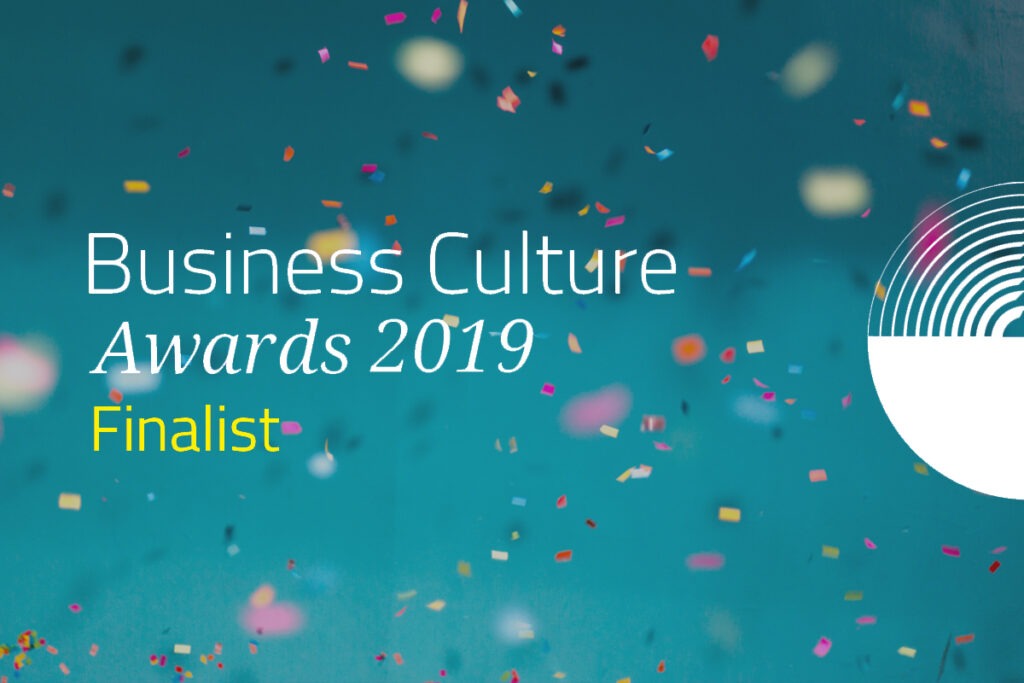
We speak to Paul Frith, Director and Co-founder of Rubica on becoming a finalist for the 2019 Business Culture Awards. The announcement sees Rubica being named as a finalist in two key categories – Consultancy of the Year and Best Large Organisation for Business Culture following Rubica’s work with Sanofi UK.
Here, Paul shares his insights on the work completed which has led to the finalist announcement…
How do you feel about Rubica being nominated as a finalist in the 2019 Business Culture Awards?
We are so pleased to be a finalist again in this year’s Business Culture Awards. For us the announcement not only recognises the strength of our work in changing company cultures, but also acknowledges Sanofi’s commitment and dedication to building a workplace culture that will positively support its strategic direction.
What project did you submit to become a finalist in the 2019 Business Culture Awards?
We are fortunate to have become a finalist in two award categories this year: Business Culture Consultancy of the Year and Best Large Organisation for Business Culture, both of which were for our work completed with Sanofi.
The project came about following Sanofi’s Diabetes & Cardiovascular (DCV) division needing to respond to an increasingly challenging landscape: customers were experiencing rising demand for medicines and increasing cost pressures, but still needed to deliver better value and improved outcomes for patients.
Sanofi DCV wanted to address this challenging landscape through its people – seeing an opportunity to improve the way everyone worked together to better serve its customers.
To do this, Sanofi wanted to pursue Key Account Excellence (KAE). This sees an organisation shift its ways of working from short-term, price-focused conversations, to longer-term negotiations based on customer insight – building customer relationships that are stronger, have greater influence and longevity.
To do this, a change in mind-sets and behaviours was fundamental – building an environment where everyone felt equipped, empowered and able to work together to develop ‘the best way’ to engage with customers, add value and ultimately improve the way it worked with the NHS.
What was your approach?
Our approach was multi-faceted and looked to:
- Define what ’excellent’ KAE looked like for Sanofi DCV (in and outside the business).
- Understand the existing beliefs and behaviours of teams that would support or hinder the success of KAE.
- The organisational set-up, people and processes – investigating the current state, and how this pragmatically needed to change to make KAE work.
- Existing ‘cultural hotspots’ that supported KAE and could be amplified or replicated elsewhere in the business.
- How account teams could work better together to enable KAE.
- How managers could support account teams to bring KAE to life.
- How leaders could support organisation-wide change and make KAE a reality.
What were the results?
Significant results were and continue to be experienced across the business, which has subsequently led to a broader roll-out organisation-wide. Results include:
- A £6m increase in DCV Business Operating Income in 2018 compared with 2017.
- Over six months, Sanofi has seen volume growths of 23.1%, 25.4% and 18.6% respectively in key geographies for its diabetes drug.
- Primary market research in December 2018 showed that up to 62% of its customers noticed a positive difference in how Sanofi interacted with them compared to 2017. One respondent commented:
It’s brought awareness and has increased uptake. Uptake would have been slower without the rep. Their constant reminder of referral pathways, data, prescribing, patient identification has all contributed to more use of the drug in our hospital.
- Over six months, Sanofi’s medication for high cholesterol experienced volume growth of 47.4% and 130.1% respectively in key geographies.
- The London Business School measured the success of DCV’s strategy over nine months of activity. Results showed that it was one of the top performing organisations in terms of efficiently executing their strategy when compared to other organisations in the study.
What does Sanofi DCV say?
I’m proud to have seen a cultural shift in the way our field teams have embraced this new way of working. We don’t focus on coverage and frequency any more. Instead, our teams are empowered to focus on their key accounts and get the best results for our key brands. It’s gratifying to see people becoming more confident about sharing best practice and taking responsibility for building their own business plans. This project represents a quantum leap in terms of ownership and empowerment for our account executives.
– Tunde Falode, DCV General Manager, Sanofi
The Rubica team were very open and up front, and constantly offered advice. They were extremely supportive, without directing or controlling us. They made it clear that effecting real change is not a one-hit wonder – it takes time and investment in people and resources.
– Paul O’Nions, Head of Business Operations & Support, Sanofi
I have noticed a marked shift in how we work together. Our people are now willing and able to make informed decisions about how we focus, time, energy and resources to deliver a win:win for us and our customers.
Rubica have been fundamental in making this change happen. Throughout this journey they have felt like part of our team. They have taken the time to really understand what we were aiming to achieve and worked tirelessly to help get us there.
– Karen Stoddart, Head of CV Franchise
 Paul Frith -
Paul Frith - 
